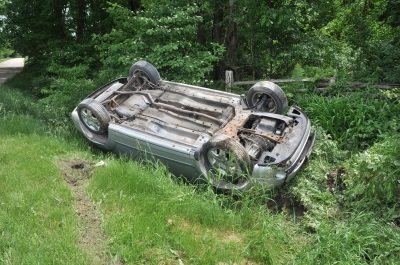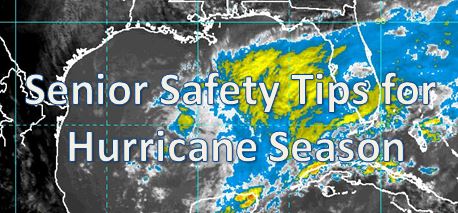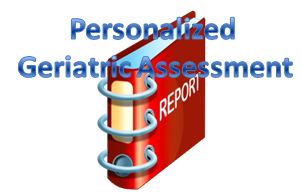Worried about an Aging Parent Driving? The Senior Driving Assessment
 It often makes the news when elderly drivers get into accidents in Florida, such as the case of a 90 year old man crashing into a pawn shop in Clearwater. These accidents tend to renew the discussion about driving laws and senior driving safety. While not every incident is age-related, it brings in to question whether individuals should be driving at such advanced ages or what testing/monitoring should be done. But, beyond the larger societal questions, this is a very personal issue for many families.
It often makes the news when elderly drivers get into accidents in Florida, such as the case of a 90 year old man crashing into a pawn shop in Clearwater. These accidents tend to renew the discussion about driving laws and senior driving safety. While not every incident is age-related, it brings in to question whether individuals should be driving at such advanced ages or what testing/monitoring should be done. But, beyond the larger societal questions, this is a very personal issue for many families.
When you’re worried about an aging parent driving, it can be very difficult to 1. know when your concern truly merits that it is time to stop driving (or force the issue) and 2. convince the person that continuing to drive is unsafe (or have a dignified discussion about the situation). A driver evaluation or assessment can be very helpful with both of these issues. An elderly driver assessment:
- Provides objective testing criteria and evidence of potential problems with driving and continued safety
- Can offer middle-ground solutions, such as limiting driving at night, a refresher course or accommodations for the driver or car
- Frames the discussion/decision in the objective testing criteria versus emotions and potentially subjective feelings about safety
When should you consider a senior driving assessment? If you have concerns or your loved one has had “small accidents” or incidents while driving (or mentions their own fears or concerns), now is the time. If you have tried talking about the situation to no avail, this might be an ideal way to more effectively address your worries (and your loved one’s feelings that your worries aren’t warranted). If you or a loved one has had a major health change or recently come out of the hospital/rehabilitation after some time, it might be appropriate to get an evaluation to be safe.
Florida offers a Fitness to Drive screening tool, which can be one place to start screening your concerns, if you have driven with the person recently. Different hospitals and agencies offer elderly driver evaluations (though they are not necessarily just for the elderly, as they are often recommended to someone of any age who had a brain injury, stroke or other illness/injury which could impair driving). You can check the Association for Driver Rehabilitation Specialists by state/area to locate resources near you or contact a local geriatric care manager to help you identify resources and handle the process.
How can a geriatric care manager help with elderly driver evaluations? An Aging Wisely care manager can help with a Tampa Bay senior driver assessment by:
- Assisting with a comprehensive evaluation of this and other safety and resource issues. Providing you with prioritized recommendations and resources to help.
- Arranging and serving as a liaison for a family conference/discussion about driving safety or other concerns. Helping your loved one maintain dignity and choice while coming up with safe solutions.
- Arranging a Tampa Bay elderly driver evaluation and help your family through the process.
- Helping you with a wide array of resources, such as CarFit, senior driver education courses and solutions to health and safety needs (related to driving or not).
- Planing alternatives for post-driving (transportation and services to ensure your loved one can maintain activity). Depression and isolation are common for elders who stop driving with no alternative plans in place. There are many great Clearwater senior driving services and resources.
Aging Wisely’s team has worked with many families over the years on evaluating elderly driver safety and coming up with solutions. Our Senior Driving Safety handout has been widely read by families and professionals. We recommend downloading it if this issue concerns you, and welcome you to share it with family members and friends.
At Aging Wisely, we are committed to helping families with this issue and offering the best possible solutions for elders. We all understand the difficult pull between the independence driving affords and the real dangers driving presents. When you’re worried about an aging parent driving, let us be your advocate in finding the balance with dignified solutions. Call us at 727-447-5845 to discuss how we can help.
*Image courtesy of Bill Longshaw/FreeDigitalPhotos.net

 While celebrating Mother’s Day and Father’s Day, we reflected on how relationships with our parents change over time. Senior caregiving in particular affects the relationship between parent and child in a number of ways. Here we share some information about changing relationships in senior caregiving and tips for making the most of your time with elderly parents.
While celebrating Mother’s Day and Father’s Day, we reflected on how relationships with our parents change over time. Senior caregiving in particular affects the relationship between parent and child in a number of ways. Here we share some information about changing relationships in senior caregiving and tips for making the most of your time with elderly parents.  Frail elderly people are particularly vulnerable during hurricanes. Of the 1,330 people known to have perished along the Gulf Coast as a result of Hurricane Katrina, 71% of those in Louisiana were older than 60 years, 47% were older than 75 years, and at least 68 died in nursing homes. Individuals with special needs, medical conditions, disabilities and those who are reliant upon caregivers and outside support face particular difficulties in managing during and after a natural disaster.
Frail elderly people are particularly vulnerable during hurricanes. Of the 1,330 people known to have perished along the Gulf Coast as a result of Hurricane Katrina, 71% of those in Louisiana were older than 60 years, 47% were older than 75 years, and at least 68 died in nursing homes. Individuals with special needs, medical conditions, disabilities and those who are reliant upon caregivers and outside support face particular difficulties in managing during and after a natural disaster. Caring for elderly parents long distance? Aging Wisely conducts Florida geriatric care assessments on behalf of many families who live elsewhere around the country and world and are concerned about their elderly loved ones in Tampa Bay. Here we will share with you the primary benefits of having a geriatric care management assessment done and the the types of solutions it offers for long-distance caregivers.
Caring for elderly parents long distance? Aging Wisely conducts Florida geriatric care assessments on behalf of many families who live elsewhere around the country and world and are concerned about their elderly loved ones in Tampa Bay. Here we will share with you the primary benefits of having a geriatric care management assessment done and the the types of solutions it offers for long-distance caregivers. Popular Downloads
Popular Downloads


 Get Our Newsletter!
Get Our Newsletter! Mission Statement
Mission Statement

